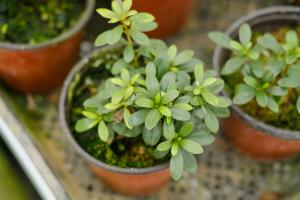Should You Water Bulbs After Planting in the Fall?
Planting flower bulbs in the fall is a popular gardening practice that ensures vibrant and colorful blooms in the spring. Bulbs such as tulips, daffodils, and hyacinths are among the popular choices for fall planting. However, one common question among gardeners is whether they should water bulbs after planting them in the fall. In this article, we will explore the importance of watering bulbs after planting in the fall and the best practices to ensure a successful bloom in the spring.
The Importance of Watering Bulbs After Planting
Water is essential for the survival of all plants, including bulbs. The period immediately following planting is crucial for the success of your bloom. After you have planted bulbs in the fall, it is essential to give them a good drink of water. Water helps to settle the soil around the bulbs, providing a healthy growing environment. Additionally, bulbs require moisture to develop strong roots that will support their growth and development.
Watering also helps to trigger the growth of roots before the bulbs become dormant during winter. Roots need to grow before the ground freezes as freezing temperatures will slow down or halt root development. Watering bulbs after planting in the fall ensures that the roots have enough moisture to grow and develop before the onset of winter.
Best Practices for Watering Bulbs After Planting in the Fall
When it comes to watering bulbs after planting in the fall, there are some best practices that you should consider. These practices will help to ensure that your bulbs develop strong roots and healthy blooms come spring.
Water Immediately After Planting
Immediately after planting, give your bulbs a good drink of water. Thoroughly soak the soil around the bulbs to ensure that the ground settles in place. This will help to reduce air pockets in the soil, which can cause bulbs to push up, resulting in weak stem growth and reduced bloom performance.
Water Regularly
After the initial watering, it is essential to keep the soil around your bulbs moist but not waterlogged. Water your bulbs regularly, ensuring that the soil never dries out, but also avoiding waterlogging, which can cause bulbs to rot. A good rule of thumb is to water bulbs whenever the top two inches of soil feel dry to the touch.
Stop Watering When the Ground Freezes
When the ground freezes, stop watering your bulbs. Frozen soil cannot absorb water, and watering can cause ice to form around the bulbs, which can damage them. Once the ground thaws in the spring, you can resume watering your bulbs to ensure healthy growth and development.
Conclusion
In conclusion, watering your bulbs after planting in the fall is essential for their growth and development. Water helps to settle the soil around bulbs, provides the moisture needed for strong root growth, and triggers root development before the onset of winter. By following the best practices for watering bulbs after planting, you can ensure healthy growth and vibrant blooms in the spring.

 how many times do yo...
how many times do yo... how many planted tre...
how many planted tre... how many pine trees ...
how many pine trees ... how many pecan trees...
how many pecan trees... how many plants comp...
how many plants comp... how many plants can ...
how many plants can ... how many plants and ...
how many plants and ... how many pepper plan...
how many pepper plan...































